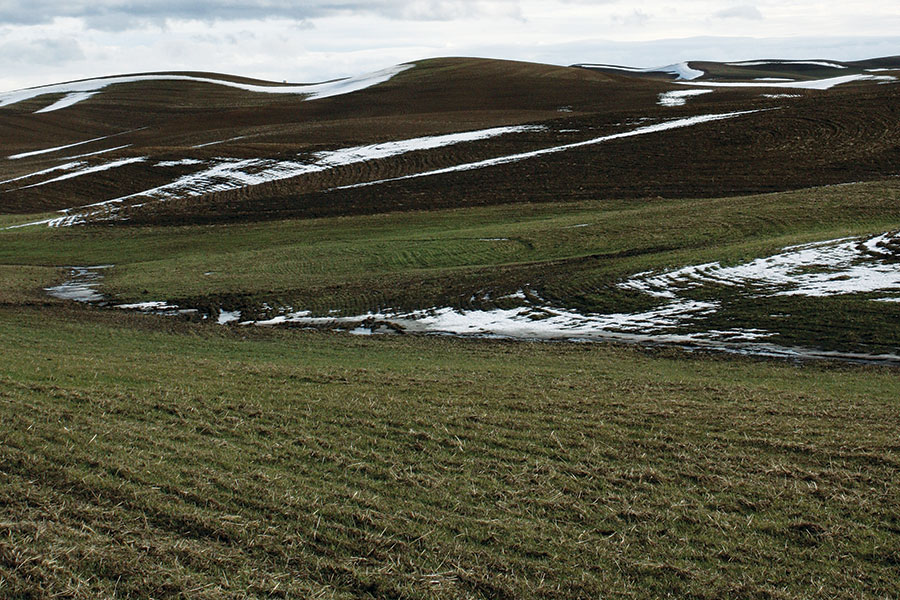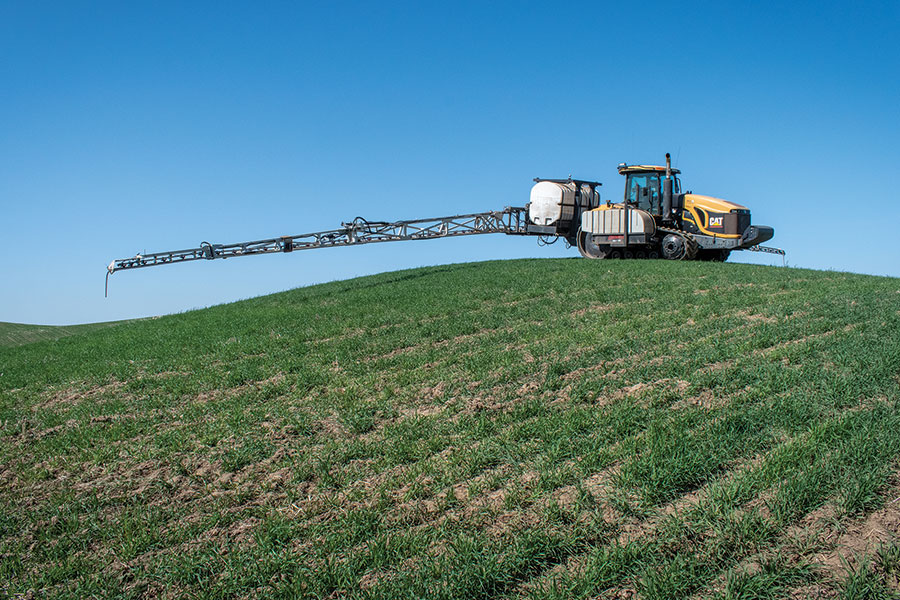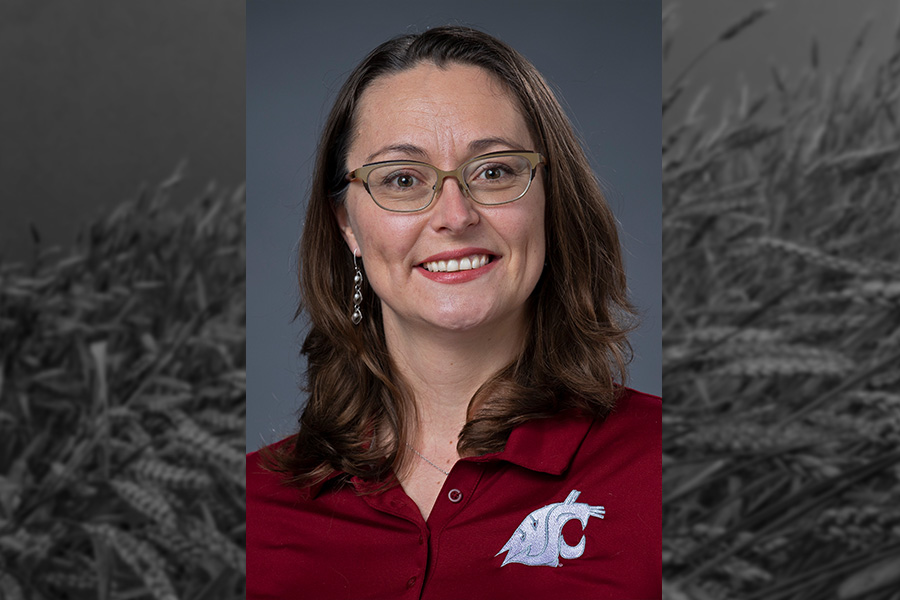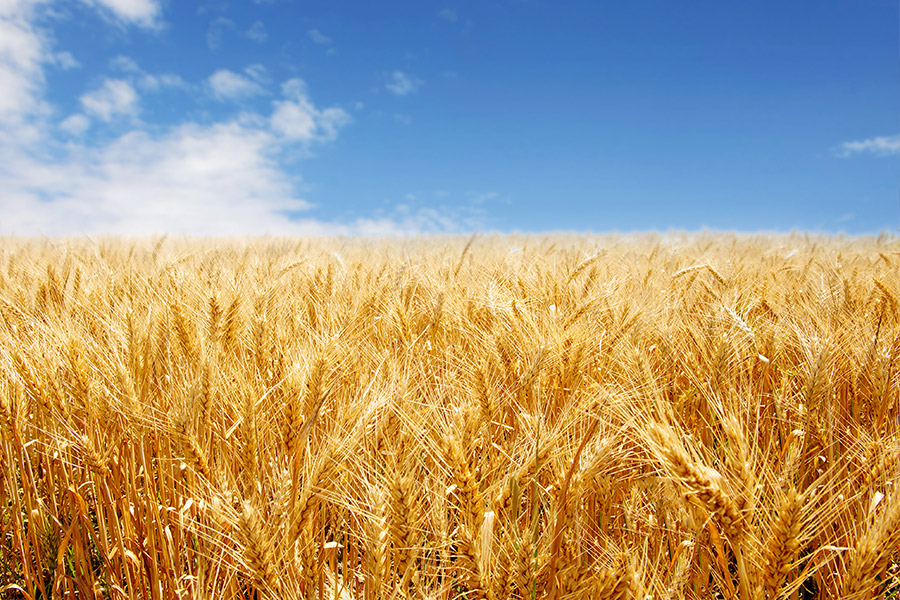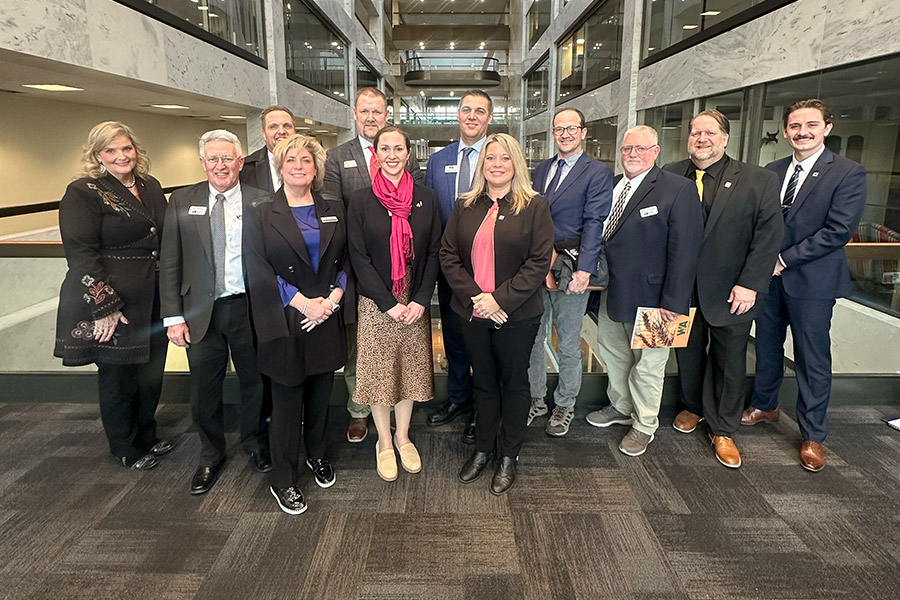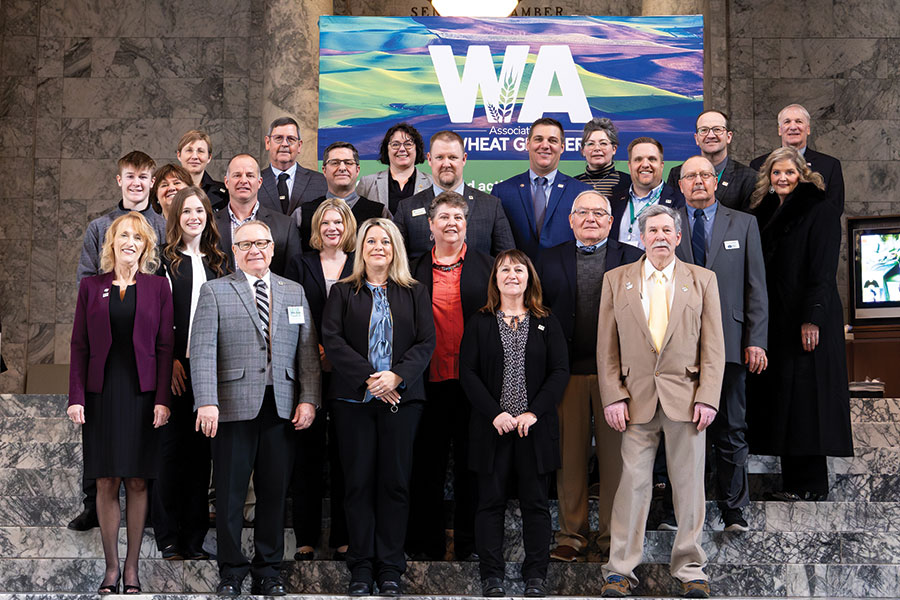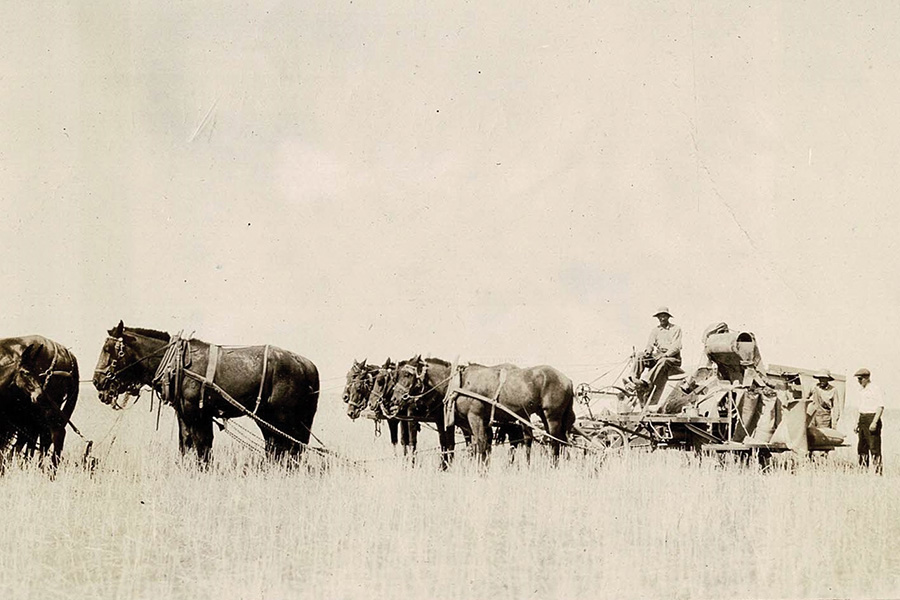Posts by Trista Crossley
Cover crop conundrum
With the last administration’s push on climate-smart practices, a lot of attention has been focused on cover crops. But how do you implement a cover crop if your cash crop is winter wheat, and you don’t have many other rotation options? The answer, according to Jake Westlin, vice president of policy and communications for the…
Read MoreStrategies for spraying
In the first Agricultural Marketing and Management session of 2025, some of the top researchers in the region explored the weeds and weed management practices Eastern Washington wheat growers are working with. Drew Lyon, a professor and holder of the Endowed Chair Small Grains Extension and Research, Weed Science at Washington State University (WSU), tackled…
Read MoreA digital gathering space for growers, researchers
Carol McFarland hopes the PNW Farmers’ Network can play a complementary role in the digital space that the coffee shop plays in the real world, a place to gather and share information. And while it’s not required, a keen interest in talking about drills and spray nozzles is always welcome. The PNW Farmers’ Network was…
Read MoreHill, farm bill updates
The start of a new administration usually brings a flurry of activity, and the second Trump administration is no exception. Fortunately, Jake Westlin, vice president of policy and communications for the National Association of Wheat Growers, was on hand to walk growers through what’s happening on the Hill as part of an Agricultural Marketing and…
Read MoreWheat visits D.C.
Advocacy for Washington wheat growers doesn’t happen just at the state level. The Washington Association of Wheat Growers (WAWG) also spends time in Washington, D.C., visiting with the state’s congressional delegation and working with the National Association of Wheat Growers (NAWG) on concerns at the national level. Wheat growers’ first trip of the new year…
Read MoreColfax business takes advantage of Whitman County’s bounty
Jaimie Appel was admiring the view of wheat fields from her home in Whitman County when the idea for a new business started to germinate. “I love being part of a farming family, but I wanted something of my own. My dad or my husband suggested making flour out of wheat. I thought, ‘well, yeah,’”…
Read MoreWheat heads to Olympia
Last month, wheat representatives visited state legislators and agencies to talk about the industry’s priorities during the Washington Association of Wheat Growers’ (WAWG) annual Olympia Days trip. Cookies were involved. “Growers spent two impactful days in Olympia, advocating for critical issues like tax exemptions and the Climate Commitment Act fuel rebate. With over 20 farmers,…
Read MoreThis Wonderful Place
Best-selling Western author and conservationist Zane Grey (1872-1939) is considered the father of the modern Western novel. He wrote some 300 short stories and 80 books. Grey’s writing was known for idealizing the American frontier spirit with archetypal characters inhabiting moral landscapes who exemplified the Code of the West — integrity, friendship, loyalty. These attributes…
Read MoreWashington ag by the numbers
The value of Washington’s 2023 agricultural production totaled $14 billion, up almost 6% from the previous record high of $13.2 billion in 2022. The value of Washington’s crop production in 2023 was $7.71 billion, down about 10% from the record high value of $8.56 billion in 2022. The value of livestock production in 2023 totaled…
Read MoreSpinning up grower education
This year’s slate of Agricultural Marketing and Management Organization’s (AMMO) winter sessions will focus on mental health, weeds, local and global markets, and U.S. Department of Agriculture agency updates. “Our goal each year with the AMMO program is to bring information that is important and relevant to growers,” said KayDee Gilkey, outreach coordinator for the…
Read More




